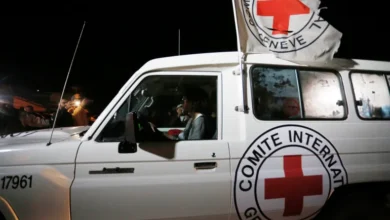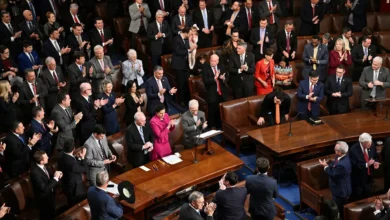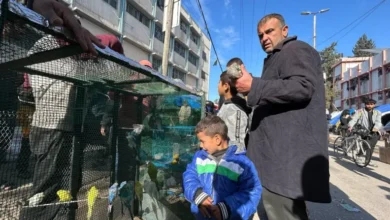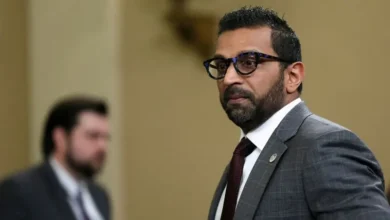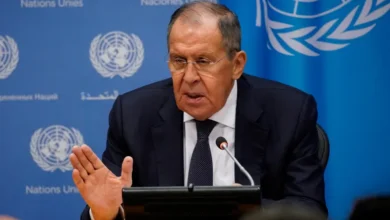Why a news site in Ireland has been drawn into JD Vance’s attacks on Europe
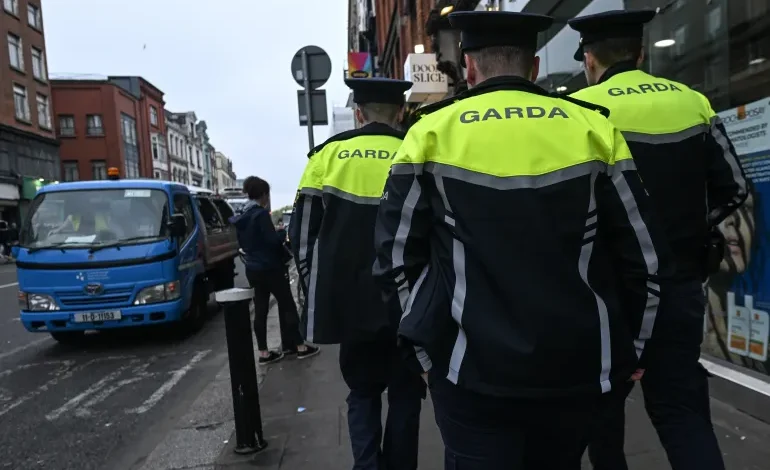
A conservative media outlet in Ireland has become the latest lightning rod for populist concerns about free speech that have exposed stark divisions between Europe and the United States in the era of President Donald Trump.
Gript, a news site known for its conservative stances on culture war issues such as mass immigration and political correctness, announced this week that Irish police last year obtained a court order to access private messages and IP addresses associated with its X account.
Gript, which purports to cover the news without the “liberal filter”, called the move an “intolerable” and “egregious” attack on privacy and media freedom.
Elon Musk’s X, which said it successfully challenged the court order, shared Gript’s statement, which was widely amplified by conservative, populist and far-right accounts on the platform in and outside Ireland.
Gript’s announcement came days after US Vice President JD Vance thrust the issues of free speech, censorship and immigration in Europe into the spotlight with a blistering speech that roiled transatlantic relations and energised the political right on the continent and beyond.
What exactly happened?
On Tuesday, Gript released a statement saying that police had sought access to its communications on X as part of investigations into violent protests that took place in April at the site of planned accommodation for asylum seekers.
Gript, which also published what it said was a copy of the court order, had published footage of the protests in Newtownmountkennedy, a town about 40km (25 miles) south of Dublin, including scenes of violent clashes between police and demonstrators.
Gript’s footage of the protests, during which six people were arrested, included video appearing to show police using pepper spray against one of its journalists among other confrontations between officers and members of the public.
Gript said that it was given no opportunity to challenge An Garda Siochana, the name of Ireland’s police force, over its application to access its communications or the resulting court order.
The outlet said it only learned that police had sought access to its communications after being informed by X.
According to the court order published by Gript, a judge determined there were “reasonable grounds” to believe footage published by the outlet on X contained evidence of criminal offences.
In a follow-up video, Gript editor John McGuirk said police had used a law originally introduced to combat drug dealers and “terrorists” to target his outlet on the “very flimsy pretext” that it might have evidence “connecting somebody somewhere” to crimes.
“In journalism, it is very important to defend your sources, to defend your readers and to defend the rights of those who work for you, up and until the point of going to prison, which I am prepared to do if necessary,” McGuirk said in his video statement.
McGuirk said that the police ultimately dropped their bid without gaining access to his outlet’s private messages and other data after X successfully challenged the move in court.
Gript did not respond to a request for comment from Al Jazeera.
What are the Irish police saying?
In a statement to Al Jazeera, An Garda Siochana said it does not comment on the comments of third parties or ongoing investigations but acknowledged the court order.
“In order to vindicate the rights of potential victims of crime including Gardai [police officers] who have been verbally and physically assaulted, An Garda Siochana has a positive obligation to obtain all available evidence relating to particular incidents,” a spokesperson said.
An Garda Siochana said the decision of whether or not to issue a court order is a matter for the independent judiciary and that it takes the “protection of the right of journalists to report freely and in safety very seriously”.
An Garda Siochana did not respond to a question about whether it had sought the communications of other media organisations or journalists.
What is the connection with Vance’s claims about free speech in Europe?
Conservative and far-right figures in and outside Ireland have highlighted the case as an example of what Vance claimed was Europe’s retreat from its “fundamental values,” including free speech.
Gript itself has sought to draw a link, with McGuirk saying his run-in with the authorities fit “very well” into the themes of the US vice president’s speech.
“I think it was timely that he made it just as the consequences of the very issues he was talking about were coming home for us,” McGuirk said in his video statement.
Harry Browne, a journalism lecturer at Technological University Dublin, said that the case involving Gript raises legitimate concerns, but questioned the attempts to link it to Vance’s criticisms of Europe’s speech restrictions.
“It is concerning but not surprising that they used this particular ‘back-door’ tool of going through the platform, and it’s likely Twitter [the former name for X] was not alone,” Browne told Al Jazeera, referring to the police’s application to access private messages on X and suggesting other social media platforms may have been similarly targeted.
“It bears no relation whatsoever to the European digital censorship regime,” Browne said, arguing that, despite Vance’s complaints, restrictions on speech in Europe are more likely to target figures on the political left, such as pro-Palestinian and antiwar activists, than those on the right.
In his withering speech to the Munich Security Conference last Friday, Vance said that Europe faced a greater threat “from within” than from China or Russia.
“I look to Brussels, where EU commissars warn citizens that they intend to shut down social media during times of civil unrest the moment they spot what they’ve judged to be, quote, ‘hateful content’,” Vance said.
“Or to this very country, where police have carried out raids against citizens suspected of posting anti-feminist comments online as part of, quote, ‘combating misogyny on the internet’.”

